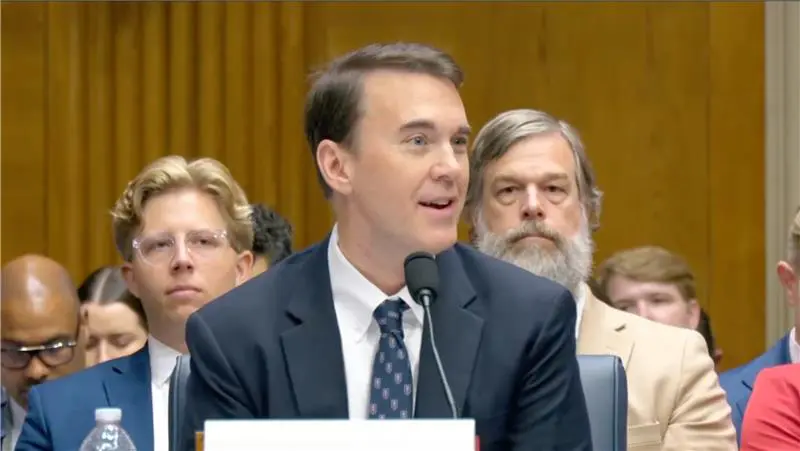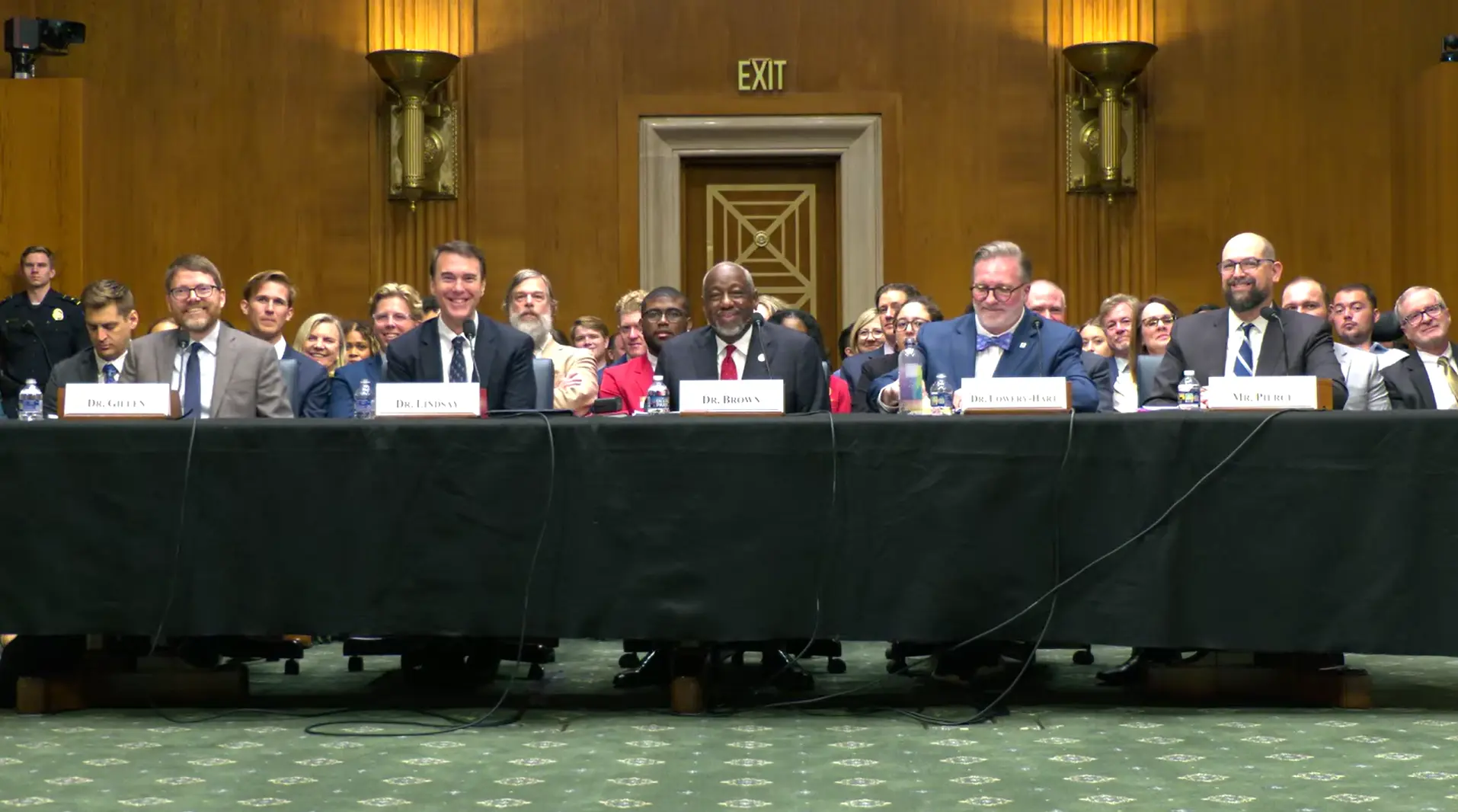-
-
- Financial Aid
- Financial Aid
- Scholarships
- Loans
- Grants
- Federal Work Study
- Additional Resources
-
 U.S. Senate HELP Hearing: The State of Higher Education
U.S. Senate HELP Hearing: The State of Higher EducationOpening Remarks from Dr. Michael Lindsay,
President, Taylor University
May 21, 2025
Chairman Cassidy, Ranking Member Sanders, and members of the Committee, thank you for the opportunity to speak today.
I serve as president of Taylor University, a Christian institution in the heart of rural Indiana. I begin with a simple observation: American higher education has lost the trust of the people it’s intended to serve. The American public has watched over several decades as recognized institutions have grown rich but rudderless. Too many have become places that grant credentials without conviction and offer dialogue without direction. The American public is not impressed.
But it doesn’t have to be this way. There are hundreds of campuses across this country going in a different direction, and Taylor is one of them.
At Taylor, you don’t see outrage culture or students walking on ideological eggshells. We have students thriving, not in the absence of accountability, but because of it. Our students, faculty, and staff commit to a shared set of values, which are articulated in our Foundational Documents. They're not really rulebooks but more like roadmaps, designed for moral formation and institutional accountability.
We place our Foundational Documents in our admissions reception room, so prospective families know exactly what we stand for. It turns out that moral clarity can be a competitive advantage. Our incoming student numbers have grown by more than 60% over the last four years.
Our sector needs a renewed sense of moral purpose. I believe higher education should not be where conviction goes to die; rather, it should be where character comes to life.
Second, we must become more focused on student formation. Too many places have spent years chasing research dollars and reputational rankings, but there are limits to this kind of strategy. What’s most needed is a common-sense focus on student learning, student development, and student engagement.
We need to look at the kinds of communities we are cultivating. What I love about a liberal arts approach to education is that it looks across disciplinary boundaries and helps create intellectual friendships across departmental lines. This should be part of a larger effort toward the holistic formation of our students, one that cares about how our students develop not just intellectually but also professionally, socially, even spiritually.
We also need to devote more attention to student learning. At Taylor, we have the Bedi Center for Teaching and Learning, and I love that some of our most senior faculty regularly participate in programs that help them sharpen their skills in the classroom. This should be the norm, not the exception.
And we should look for tangible ways to give students more chances to lead and then support them in this work through intentional mentorship. Most college students don’t arrive with great skills in communication or problem-solving, but they can develop them through experience and coaching.
All of this requires investing in our students. I am so grateful for the expanded Pell Grant support because I see the difference it has made in the lives of our students. I’m proud of the way Taylor has married generous financial aid with strategic cost savings. Since 2010, our average net tuition cost has decreased by 24% when adjusted for inflation, and during that same time, we’ve more than tripled the amount of dollars we award in student scholarships, growing from $14 million to $48 million annually.
Many of our peers are doing similarly good work. For every dollar that a student receives in federal grant assistance, member institutions in the Council for Christian Colleges and Universities contribute $5 of their own in institutional aid. This is a model of shared investment that is making a measurable difference in the lives of thousands of students.
Third, the mission of higher education cannot stop at the edge of our campuses. It must extend into the community.
That’s why Taylor launched the Main Street Mile Initiative, a $100 million public and private investment to revitalize our hometown of Upland. We’re developing more than 100 units of new housing, a collegiate inn and destination restaurant, and over 6 miles of new trails. We’ll distribute more than $1 million in seed funding for new ventures and welcome over 150,000 annual visitors to our small town.
We are in the midst of a $500 million fundraising campaign, and we are committing 20% of the total funds to benefit not our campus, but the wider community. In the process, we are not only transforming Upland for good, but it’s also transforming us, making us into a campus that genuinely loves its hometown. Now that’s something every university in America should do.
These three touchstones—renewed moral purpose, student formation, and tangible community impact—are the key to American higher education reclaiming its place as the world’s most powerful force for human flourishing.
Read Dr. Lindsay's full testimony presented to the Committee on Health, Education, Labor, and Pensions (HELP).
